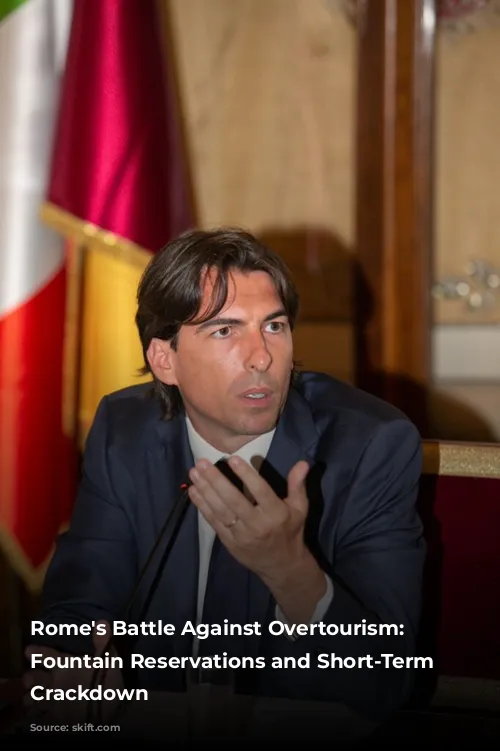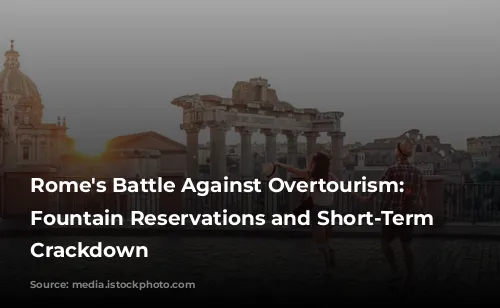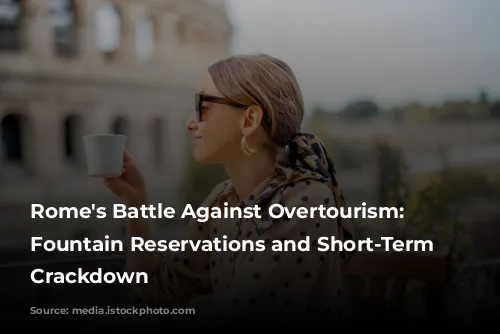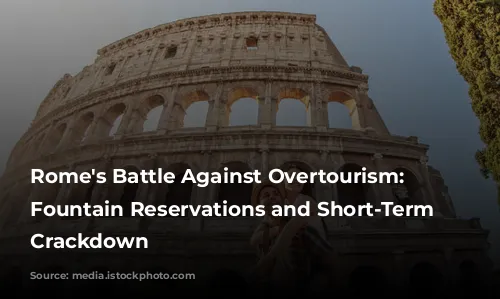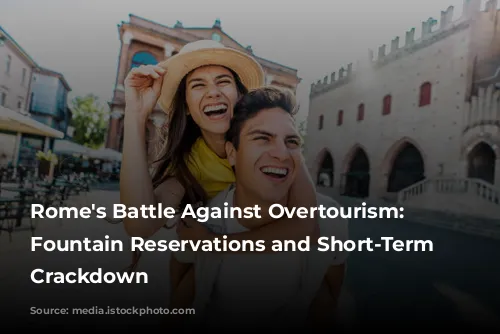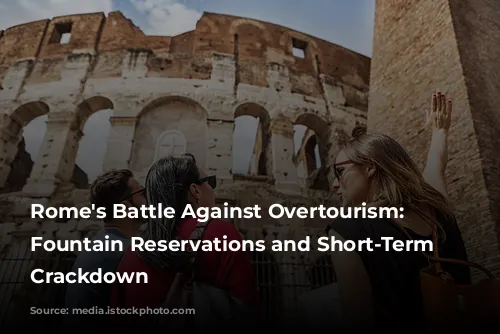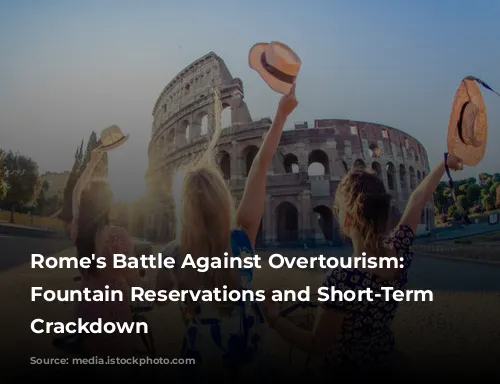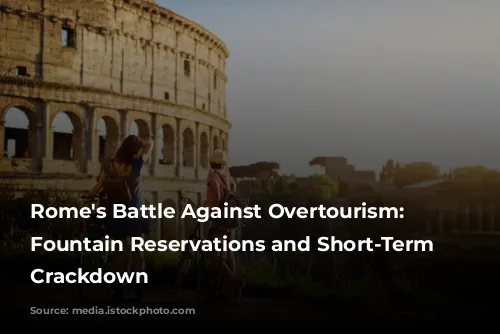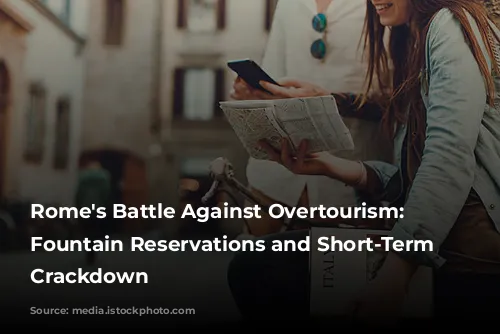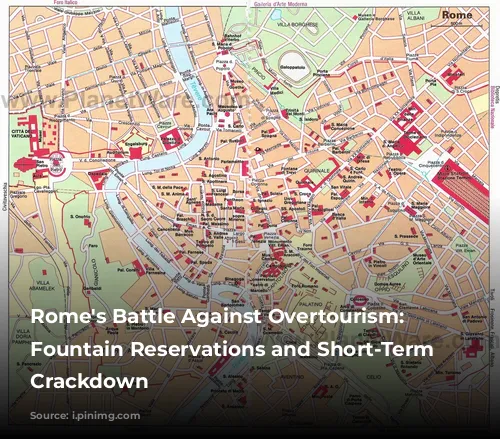Rome, the Eternal City, is grappling with the challenges of overtourism. Record-breaking visitor numbers are straining popular attractions, impacting local residents’ quality of life, and making the city less affordable. To tackle these issues, Rome is implementing innovative solutions, focusing on managing visitor flow and regulating short-term rentals.
Controlling the Crowds at the Trevi Fountain
Rome is taking a proactive approach to managing the overwhelming crowds at the Trevi Fountain, one of the city’s most iconic landmarks. The chaos at the fountain is a direct result of the city’s record-breaking tourism numbers, with Rome on track to welcome over 50 million visitors this year.
To ensure a more pleasant and manageable experience for everyone, Rome is introducing a reservation system for access to the Trevi Fountain. This innovative system will involve a mandatory entry and exit system, similar to what is seen at many museums. Visitors will have to purchase a symbolic €2 fee, which will be used to hire stewards and hostesses to manage the crowds and protect the monument.
“We aim to create a unique, special and serene experience for all tourists,” explains Alessandro Onorato, Rome’s deputy mayor of tourism.
The reservation system is also designed to improve visitor behavior. It will make it easier to discourage activities like jumping into the fountain and eating, which can damage the monument and detract from the experience for others.
Tackling the Rise of Short-Term Rentals
The increasing popularity of short-term rentals in Rome has contributed to the city’s affordability crisis. This has led to a significant increase in the number of these rentals, doubling to over 30,000 units in the last five years. The city is taking a firm stance against illegal listings, conducting over 10,000 inspections in the last two years.
Rome is also implementing new registration and building code requirements to slow down the growth of short-term rentals. “We are making life difficult for those who want to open in a wild manner,” says Onorato.
However, the city is limited in its ability to fully regulate short-term rentals. Italy lacks a clear legal framework for local governments to regulate this sector effectively. Onorato emphasizes the need for national government action to grant local authorities the power to create regulations appropriate for each city.
Rome’s efforts to manage tourism and short-term rentals represent a significant challenge for the city. The city is striving to create a balance between preserving its cultural heritage, fostering a positive visitor experience, and ensuring the well-being of its residents. By implementing innovative solutions and advocating for stronger national legislation, Rome is working to ensure that tourism benefits the city and its residents for years to come.
